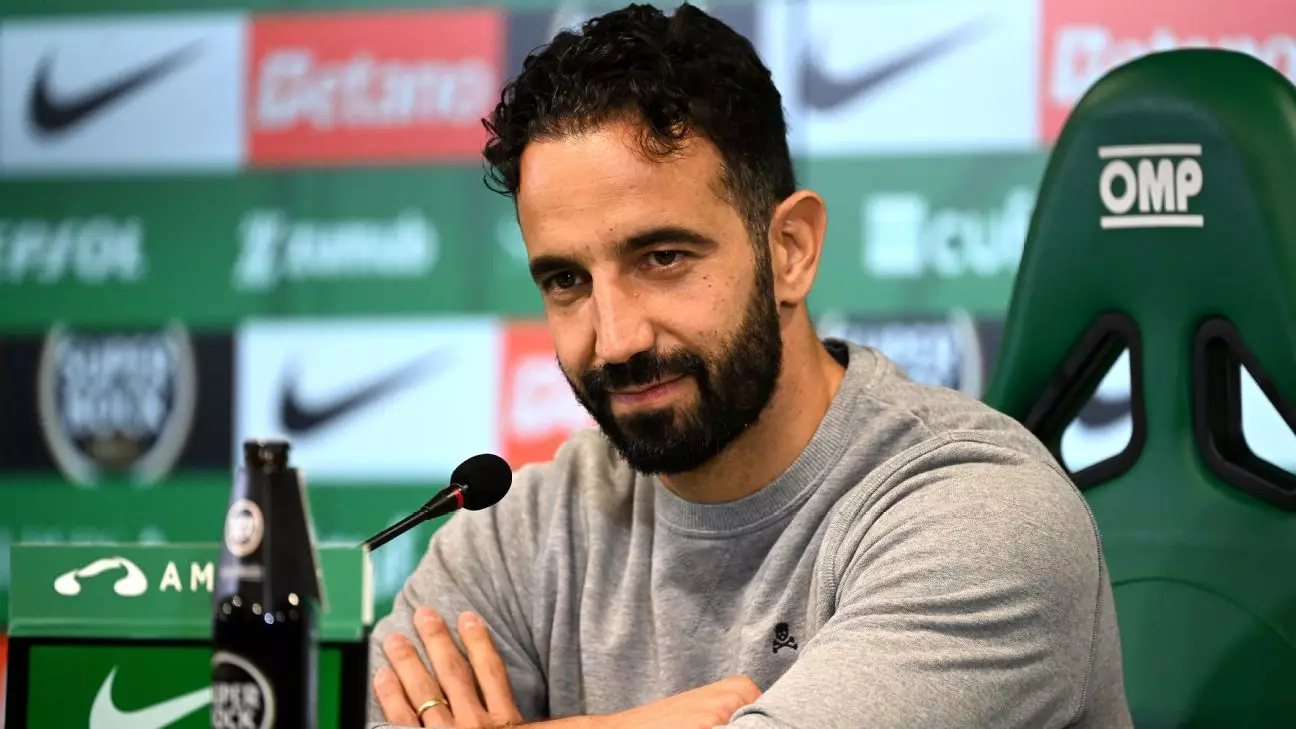The appointment of Rúben Amorim as Manchester United’s head coach marks a significant shift in the club’s strategy as they look to revitalize their performance on the pitch. Armed with a two-and-a-half-year contract, Amorim will officially stamp his influence at Old Trafford beginning November 11. His experience overseeing success at Sporting CP will undoubtedly guide him as he navigates the challenges that come with the iconic Premier League club. However, it remains to be seen how his voice will resonate amid a complex decision-making structure regarding player contracts.
In a notable departure from previous managerial authority, sources indicate that Amorim will have a crucial say on player contracts nearing expiration, like those of Victor Lindelöf and Christian Eriksen, among others. This suggestion highlights a growing trend in modern football where coaches are brought in not just for their tactical prowess but also for their insights into player management. While he is to provide his opinions, the final decisions will rest with key executive figures, including CEO Omar Berrada and sporting director Dan Ashworth. This layered approach may create its own set of challenges, especially as Amorim begins to form his own assessments of the squad.
Transitioning to Amorim’s preferred 3-4-3 formation presents a fascinating opportunity for existing players to prove their adaptability. This tactical shift could breathe new life into a lineup often criticized for its predictability. For instance, Harry Maguire, despite his struggles for consistency under Erik ten Hag, has excelled in a three-man defense before and could thrive under Amorim’s guidance. Players like Amad Diallo, meanwhile, will be under the spotlight to quickly integrate into this new system, requiring them to demonstrate both skill and versatility.
Moreover, several players whose contracts expire at season’s end, including Lindelöf, may find their futures closely tied to Amorim’s philosophy and tactical preferences. The Swede’s previous link with a move to Fenerbahce emphasizes the delicate balance between retaining talent and planning for the future. Lindelöf, who previously faced transfer talks interrupted by injury, presents a unique case. If he can forge a connection with Amorim’s system, he may solidify his standing in the squad.
As he steps into his role, Amorim’s ability to juggle personnel decisions with collaborative input from the club’s hierarchy will be critical. The dynamics within managerial structures often play a significant role in a club’s success or failure. While he is expected to weigh in on player retention, the overarching authority of the Manchester United executive team introduces a cautious optimism tempered by apprehension. Observers will be watching keenly as Amorim’s tenure unfolds, scrutinizing how this new model of collaboration impacts the club’s ambitions on the pitch.
Ultimately, Rúben Amorim’s appointment is not merely a fresh face at the helm but also a strategic choice that reflects Manchester United’s aspirations. By involving him in the decision-making process regarding player contracts and facilitating a tactical overhaul, the club seems poised for a renaissance. Yet, as with any transformation, success will depend not only on Amorim’s vision but also on his ability to execute it within the structured environment of United’s leadership.

